Sustainability & Recycling

Sustainability
At Daler-Rowney, part of the FILA Group, we are committed to operating responsibly and integrating sustainability into our business model and daily operations.
The Sustainability Plan, as part of the Group’s Strategic Plan, sets out to include sustainability issues in every corporate activity, based on specific pillars and follows the global Sustainability Development Goals (SDGs). View FILA's Sustainability Plan.
The sustainability initiatives at Daler-Rowney consist of several projects that have been completed or are ongoing.
In addition, we are currently in the process of applying for the ISO 14001 certification. ISO 14001 sets out the criteria for an environmental management system and maps out a framework that a company can follow to set up an effective environmental management system.
View our key sustainability projects below split into five objectives - Products, Planet, People, Partnerships and Economic Sustainability:
Products
Products are the core of our business and our goal is to continue improving the manufacturing of sustainable, qualitative and durable art materials.
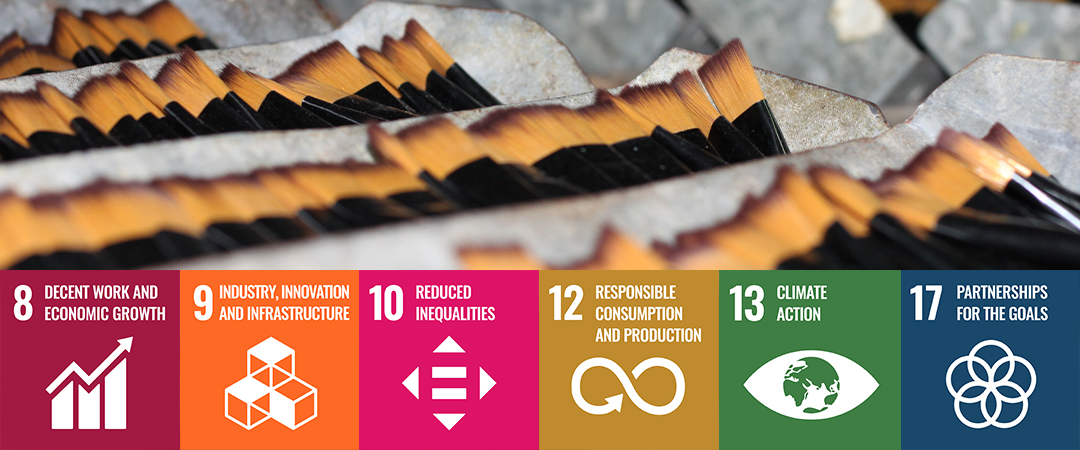
At Daler-Rowney, we have been working on new processes to make sustainability a key consideration when designing new products. This will also determine if the product will go ahead or what changes need to be made to the production process, packaging, raw materials, and suppliers to make the product more sustainable.
In conjunction with our New Product Development Sustainability Process, we also are reviewing the production process, packaging, raw materials, and suppliers of our existing products to make them more sustainable. In some cases, this means reducing the number of raw materials used and/or merging ranges, as well as, changing recipes to reduce the variety and number of raw materials used.
Raw Materials Rationalisation
The company currently holds thousands of chemical raw materials for the production of its various recipes. Although a large number is required for manufacturing, there is scope for a significant reduction in the quantity carried. A more refined chemical catalogue will reduce the need to purchase new materials which can sit on the stores' shelves for long periods, and in turn reduce chemical waste, increase storage space, and reduce shipping costs.
Packaging
Over the course of the past few years, and in relation to the new UK plastic tax, we have been working on making our packaging more sustainable on new and current products. To do this, we have been working on a more accurate and faster method of capturing key product data, such as packaging material and weights, allowing for reports to be generated and data to be analysed quicker. This has bought packing materials and sustainability to the forefront of the product development process.
In line with UK & EU Packaging Materials & Waste Sorting Regulations, we have been updating our packaging with the relevant recycling information symbols. For more information, visit our Recycling Hub.
Suppliers
We work with several suppliers for our raw materials and specific products because of this we use the widely recognized SEDEX system and have implemented factory audits of suppliers in high-risk countries.
SEDEX is a membership organisation that provides one of the world's leading online platforms for companies to manage and improve working conditions in global supply chains.
Animal-Derived Ingredients
Throughout the past few decades we have been reducing the use of animal-derived ingredients and now only have a small selection of products which have animal-derived ingredients.
Planet
It is vital that we all work towards protecting water-related ecosystems and reducing environmental impacts whilst increasing energy efficiency and the use of clean technologies in manufacturing operations to help combat climate change and reduce our carbon footprint.
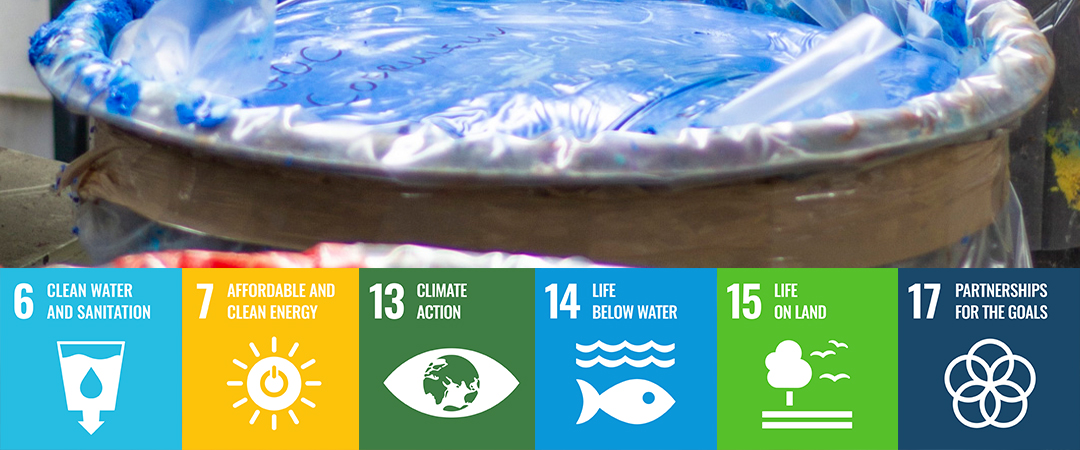
At Daler-Rowney, we seek to minimise our impact on the environment through an audited process of reviews. All activities, products, and services are documented within our Aspects & Impacts Register. We are on the way to being certified to ISO 14001 and meeting all applicable legislation and requirements. Customer satisfaction is considered a top priority, and all staff are made aware of ways in which we can reduce our environmental impact. Environmental considerations are made within all of our processes.
Aims & Objectives
- Minimising any negative impacts our business activities have on the environment.
- Setting documented environmental objectives based on our significant environmental aspects, compliance obligations and considering our risks and opportunities.
- Identifying all applicable local and international laws and regulations that apply to us and ensuring we are always in full compliance with these.
- Identifying our key stakeholders and how our business activities impact them.
- Continually improving our Environmental Management System (EMS) through objectives and target setting with regular tracking of progress through management review.
- Ensuring our EMS is in full compliance with the requirements of ISO14001.
- Minimising production waste through re-use initiatives, production efficiencies and on-site sorting of recyclables with clear targets set and progress tracked.
- Minimise the amount of waste to landfill through the adoption of the waste hierarchy: ELIMINATE, REDUCE, REUSE and RECYCLE.
- Tracking energy consumption and identifying opportunities to reduce or replace with renewable sources.
- Tracking water consumption and identifying opportunities to reduce.
- Minimising the impact on marine ecosystems through initiatives on recycled plastic and general plastic reduction.
- Considering the life cycle of a product at the development stage
- Safeguarding against deforestation through maintaining and expanding on our FSC certification and ensuring we are compliant with UKTR and EUTR regulations.
- Reducing our carbon footprint. Partnering with expert consultants so that we reduce our Scope I-III emissions and achieve a Carbon Neutral status by the end of 2026, using offsetting schemes that follow the core principles listed below.
- Building a diverse portfolio aligned to Oxford Principles (transition to carbon removal)
- Assess project baseline, additionality, leakage, permanence and durability
- Analyse the co-benefit and contribution to the UN SDGs
- Highlight the significance of nature-based & biodiverse systems
- Ensure credit vintage issuance 2020 or later
- Ensure that we integrate sustainability considerations into our business decisions
- Put controls in place to protect the environment from any significant environmental aspects and impacts arising from our work activities.
Did you know? We have recycled 941,445kg of paper, card, plastic and metals over 3 years.
We have established a recycling centre at our Bracknell site for the sorting of waste paper, plastic, metal, and wood produced by the factory and office. We collect annual recycling data from the recycling centre to review our procedures and amend them if necessary.
Paper & board are sorted separately to maximise the recycling options and future use, this includes sending boards to our Dominican Republic factory, in our pre-scheduled shipments, to reuse in products.
In addition to the centre, across all Daler-Rowney sites (factories, warehouses, and offices), we have installed a variety of recycling bins to reduce unnecessary landfill waste and deployed reusable crates in the production process to reduce the use of non-reusable card cartons.
We have also updated our new packaging to be in line with key countries' (that Daler-Rowney is sold in) updated recycling and packaging regulations to improve the sustainability of our products. For example, we have replaced the black tray inserts with white inserts in the Simply range, due to the limitations of the UK's recycling technology which has difficulty in recycling black plastic. Visit our Recycling page for more information about recycling and packaging regulations.
To increase the recycling of our plastic tubes, an educational piece on how to safely dispose of water-based paint residues is being prepared.
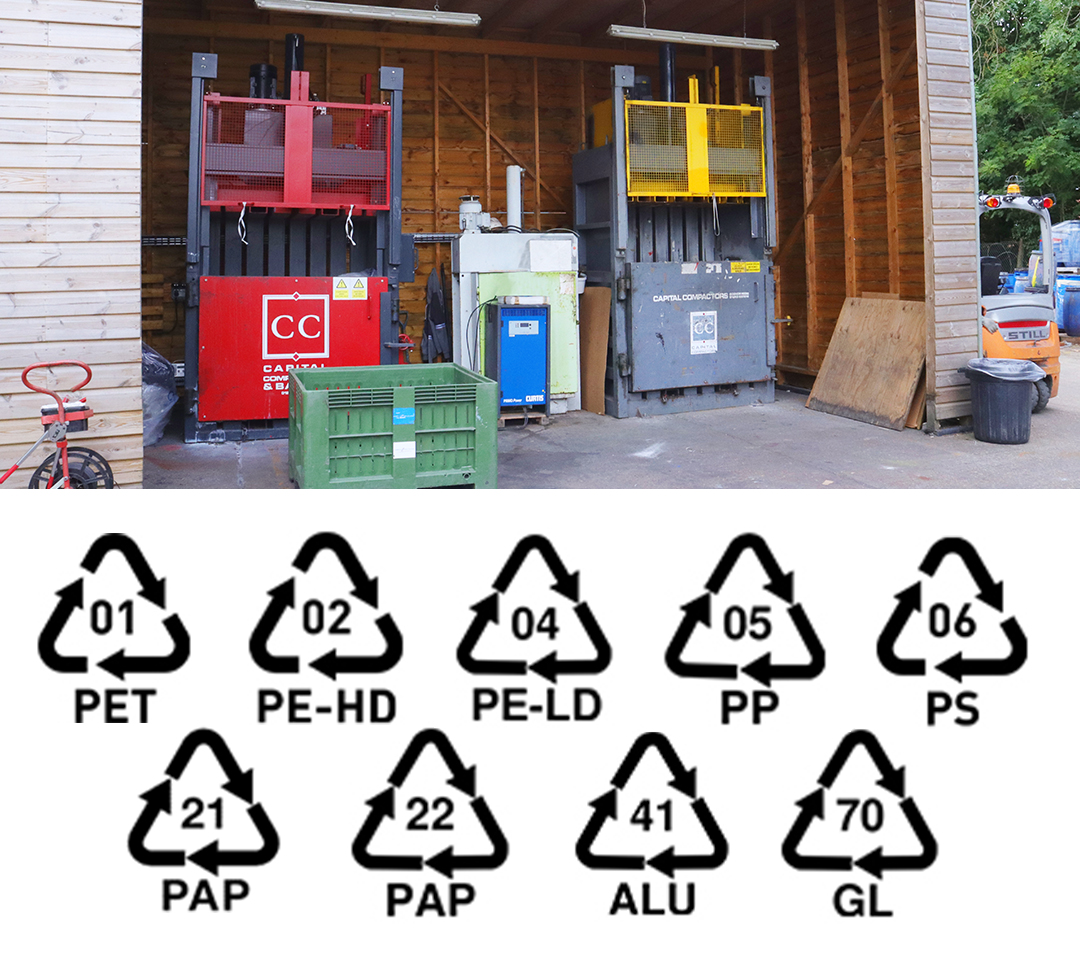
Did you know? 100% of energy purchased is all from renewable sources for Bracknell.
We have installed solar panels at our warehousing locations to reduce our reliance on non-renewable energy and further investment is being planned for the factories to move to solar energy. We are also in the process of upgrading to an LED lighting system to reduce the energy consumed in the factory.
In 2021, we negotiated with our energy supplier, Open Energy Market, for all our UK sites to only use energy from green and sustainable sources. These sources include solar panels, wind turbines, anaerobic digestion, and biomass plants. In addition to this, we became part of the Cool Earth initiative that will protect an area of a rainforest in Peru which matches the footprint of our buildings (237,800 sq. ft in total).
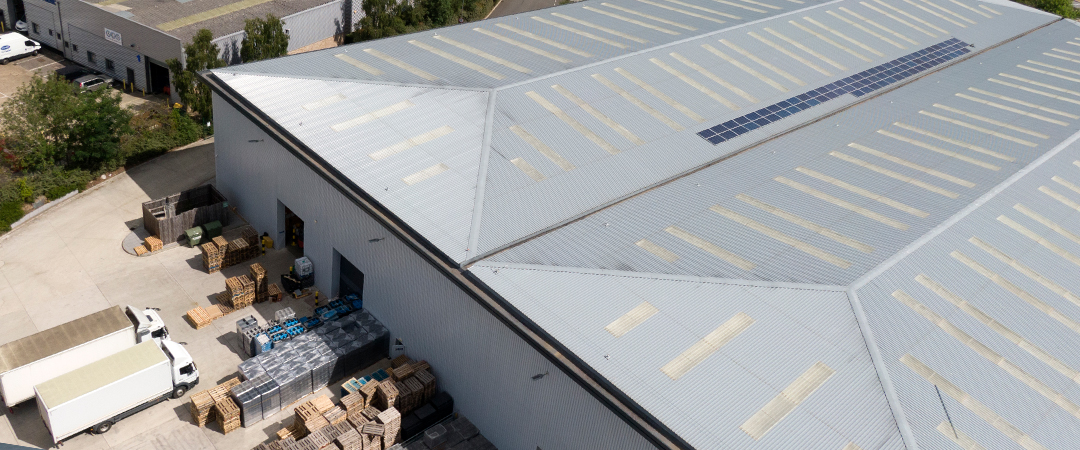
Did you know? We ship up to 60,000kg less water per year.
We have invested heavily in the latest basket mill technology which allows us to prepare pigment dispersions in-house. This has significantly reduced the quantity of water (~50% dispersion can be water) shipped to us from other sites in the UK, which in addition reduces our energy consumption and emissions with respect to transportation.
We have also installed a water recycling system to reduce water waste in our watercolour cooking process. Historically the vacuum needed for the cooking process relied on a constant flow of water and was previously sent straight to trade effluent. Due to this widely used process in the manufacturing industry, it was shown that up to 1000 L per day was wasted in this manner. Through the installation of a water recycling system, this wasteful use of a precious natural resource has been significantly reduced.
We are working across all our ranges to see what further changes/investments can be made with respect to transportation and water consumption.
Daler-Rowney is FSC® certified, and we continue to increase the use of materials from responsibly managed FSC®-certified forests in our products and packaging. For example, the grey board for canvases and wooden brush handles have entered our FSC® chain of custody. In addition, we are planning to bring the various box sets we manufacture at Bracknell into the FSC® chain of custody.
To find out more about the Forest Stewardship Council® click here.
Search FSC® on our website to see our current FSC®-certified (FSC-C111372) products.
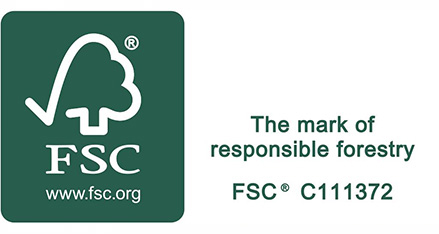
Throughout the company, and in line with the FILA's Sustainability Goals and UN SDGs, we are working on setting a specific target to reduce single-use plastic, both internally and externally, and to implement a plan to hit the target within a short timeframe including looking into recyclable plastic for our plastic pots and opportunities for using other materials.
One major single-use plastic within the company is polypropylene chemical containers which are used to hold dispersion intermediates. With the use of lined drums and enhanced cleaning, re-using the containers is feasible and would reduce significantly single-use plastic in the company.
In addition, the current operation of filling our paint involves the use of large CHEP bags. This operation will be adapted by moving to re-useable and sealed plastic drums with thinner or more ecological materials as liners.
Product Wastage in Colour Production
As per any manufacturing process, especially in paint colour production, there is product wastage due to inconsistency in colours, formulas, and consistency. However, to counteract this waste, we currently convert as much as possible and also are working on a new process to convert our colour paint wastage into a bespoke colour where possible. A one-off colour increases the education on waste reduction and sustainability within the artist community.
Dust Extraction
We have installed state-of-the-art extraction technology (down flow booths) in the production mill room to reduce the risk associated with dust particles. This project will also lead to the re-life and reuse of older systems in another area of production.
Commuting
The COVID-19 pandemic opened up new ways of working which are undoubtedly beneficial to the environment. This allowed the company to revisit its processes on staff commuting to the office and meetings that were not essential to be face-to-face. This in turn increased the use of Microsoft Teams and reduced the need to commute to the office, suppliers, partners, and customers for meetings. The positive benefits of this process have meant that it will not be stopped since lockdowns have been lifted.
People
Our goal is to continue inspiring, valuing and empowering people, fostering expression & inclusivity, diversity and individuality.
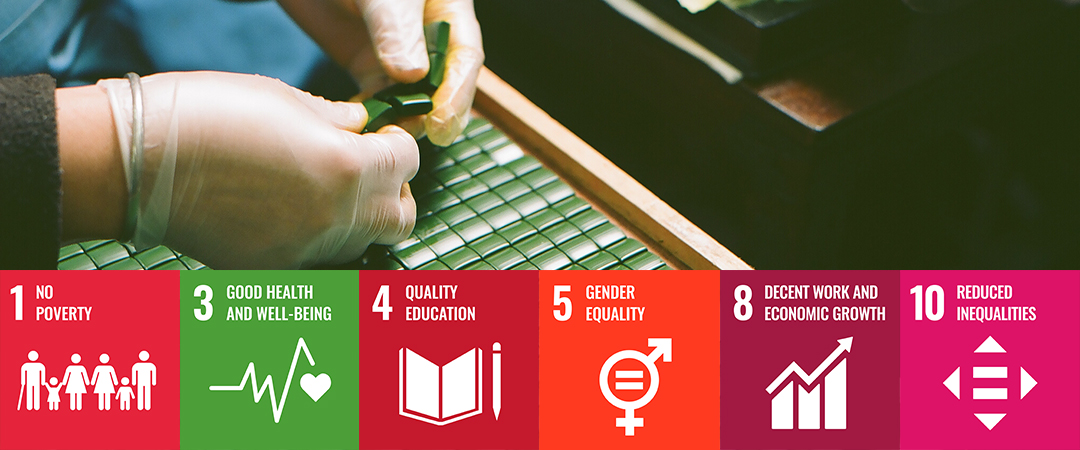
The upgraded art & multi-functional studio space in the Bracknell headquarters hosts artistic sessions for staff which has increased the connectivity within the workforce and simultaneously helps to improve wellbeing.
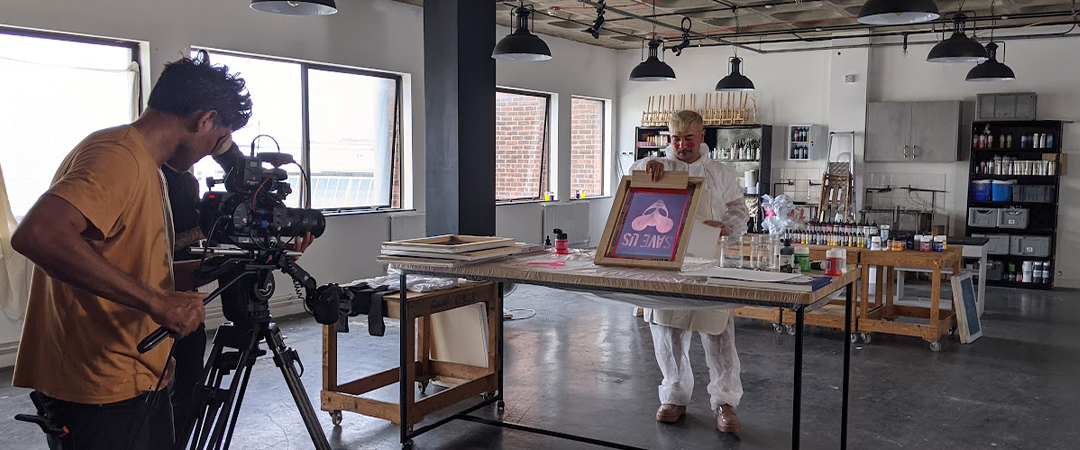
We are in the process of being certified by the occupational ISO 45001 Health & Safety Management Standard and implementing a health & safety programme that inspects by area and is in line with ISO 45001.
ISO 45001 is an international standard for health and safety at work developed by national and international standards committees independent of government.
Training
Investing in the training of employees is essential in all companies, and in areas such as risk assessment, this allows employees to proactively contribute towards HSE.
Vacancies
Developing employees is important and to increase development, open vacancies are posted internally before going externally which allows employees who want to develop their skills in areas that interest them to do so. Interested in joining the team? Visit our Careers page to see available roles.
Smart Working
The COVID-19 pandemic opened up new ways of working which are undoubtedly beneficial to the environment. This allowed the company to revisit its processes on staff commuting to the office and meetings that were not essential to be face-to-face. This in turn increased the use of Microsoft Teams and reduced the need to commute to the office, suppliers, partners, and customers for meetings. The positive benefits of this process have meant that it will not be stopped since lockdowns have been lifted.
Partnerships
Our goal is to continue to work with the local areas & communities and increase our global sustainability partnerships to promote inclusive and sustainable industrialisation and cultural & artistic learning with educational and cultural activities.
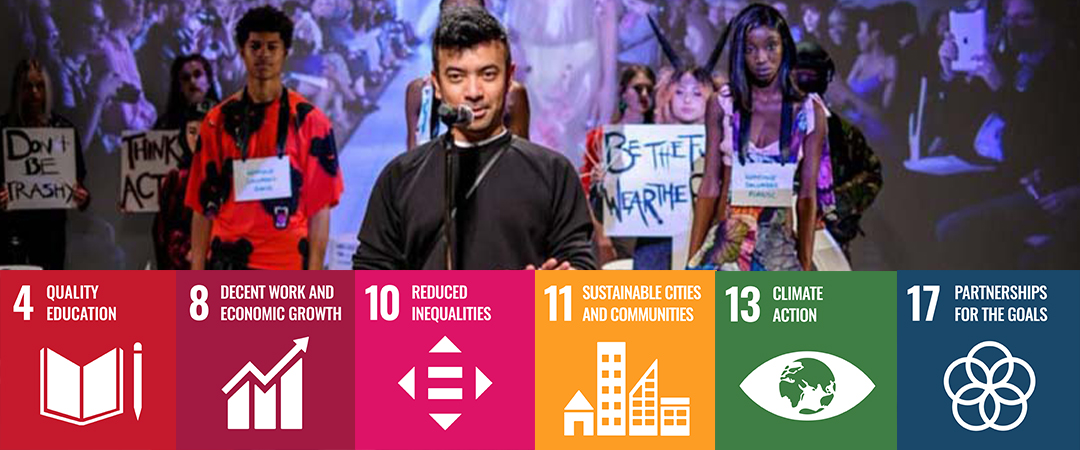
In 2018 Daler-Rowney appointed the British fashion designers VIN + OMI to global fashion Ambassadors. The partnership, VIN + OMI X Daler-Rowney, includes art and fashion collaborations that turn our waste plastic into textile for their catwalks & other projects, and creative interventions around their underground fashion shows during London Fashion Weeks.
We have also collaborated on an upcycling challenge, PUNK IT UP. Find out about the challenge here.
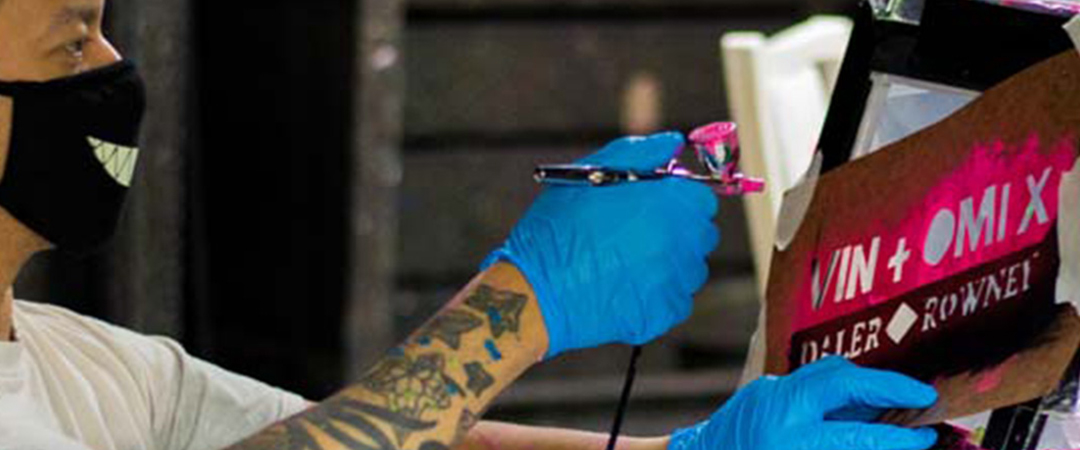
We make regular donations of products that of samples or discontinued products, due to new types of products/formulas or packaging, to key schools and charities in the local area to avoid unnecessary waste generation.
Economic Sustainability
We will continue to secure the future for all stakeholders across the company and create sustainable value in the medium-/long-term whilst implementing sustainability governance in line with best practices.
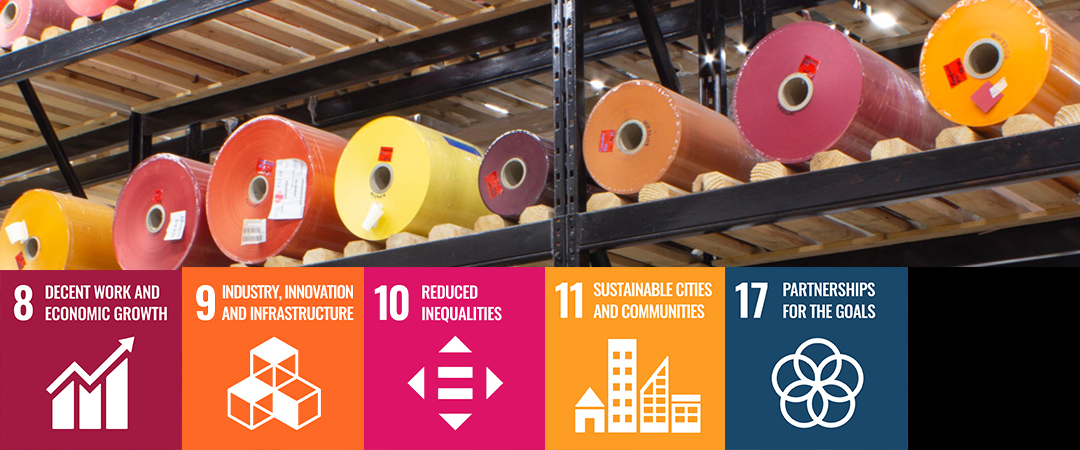
Contact Us
For further information or questions, please contact us via our form.
